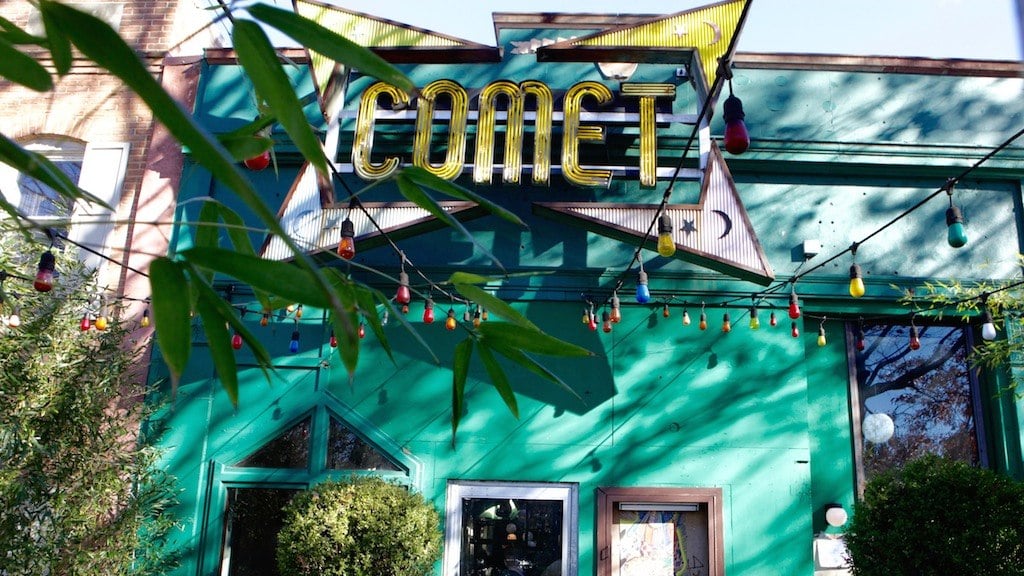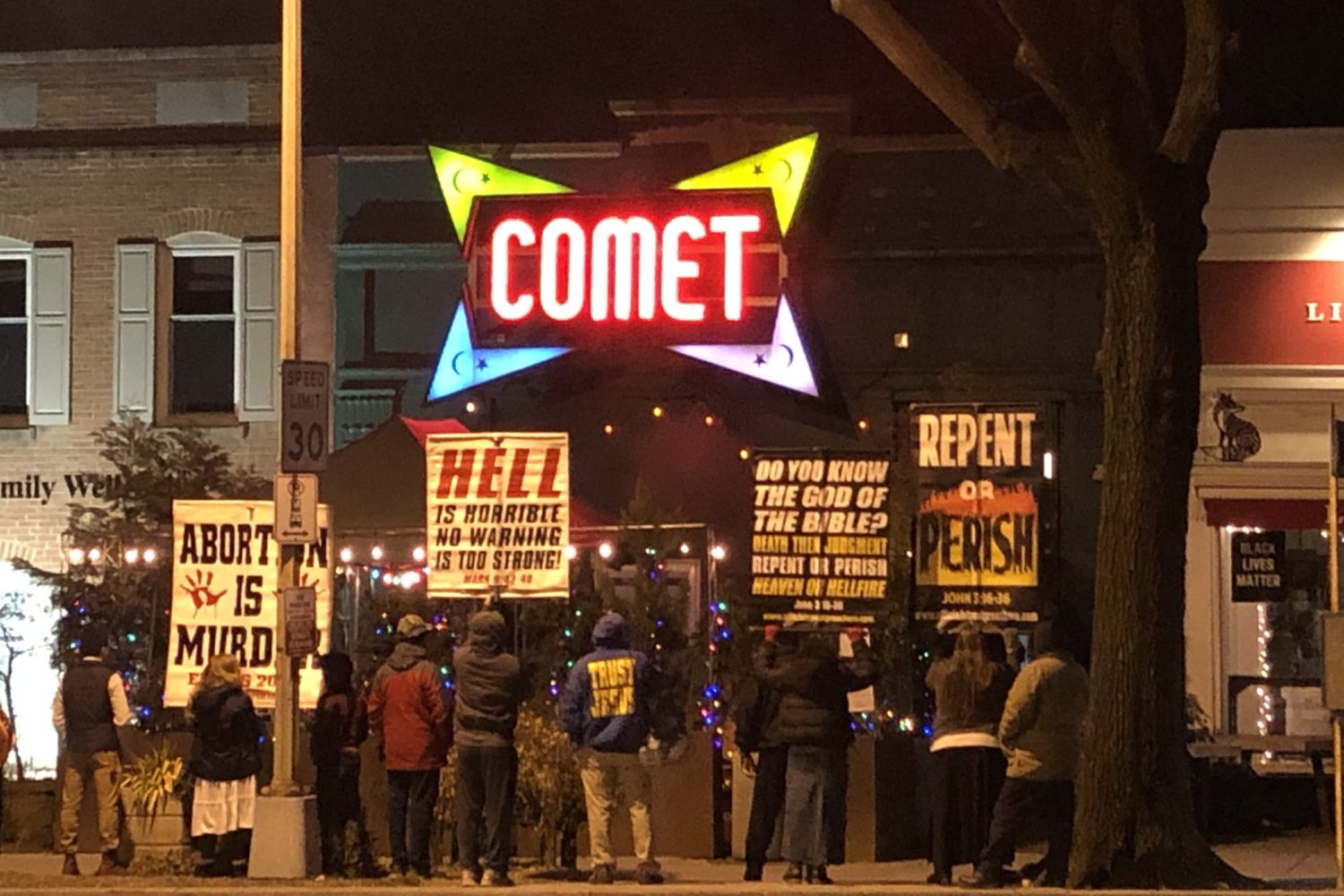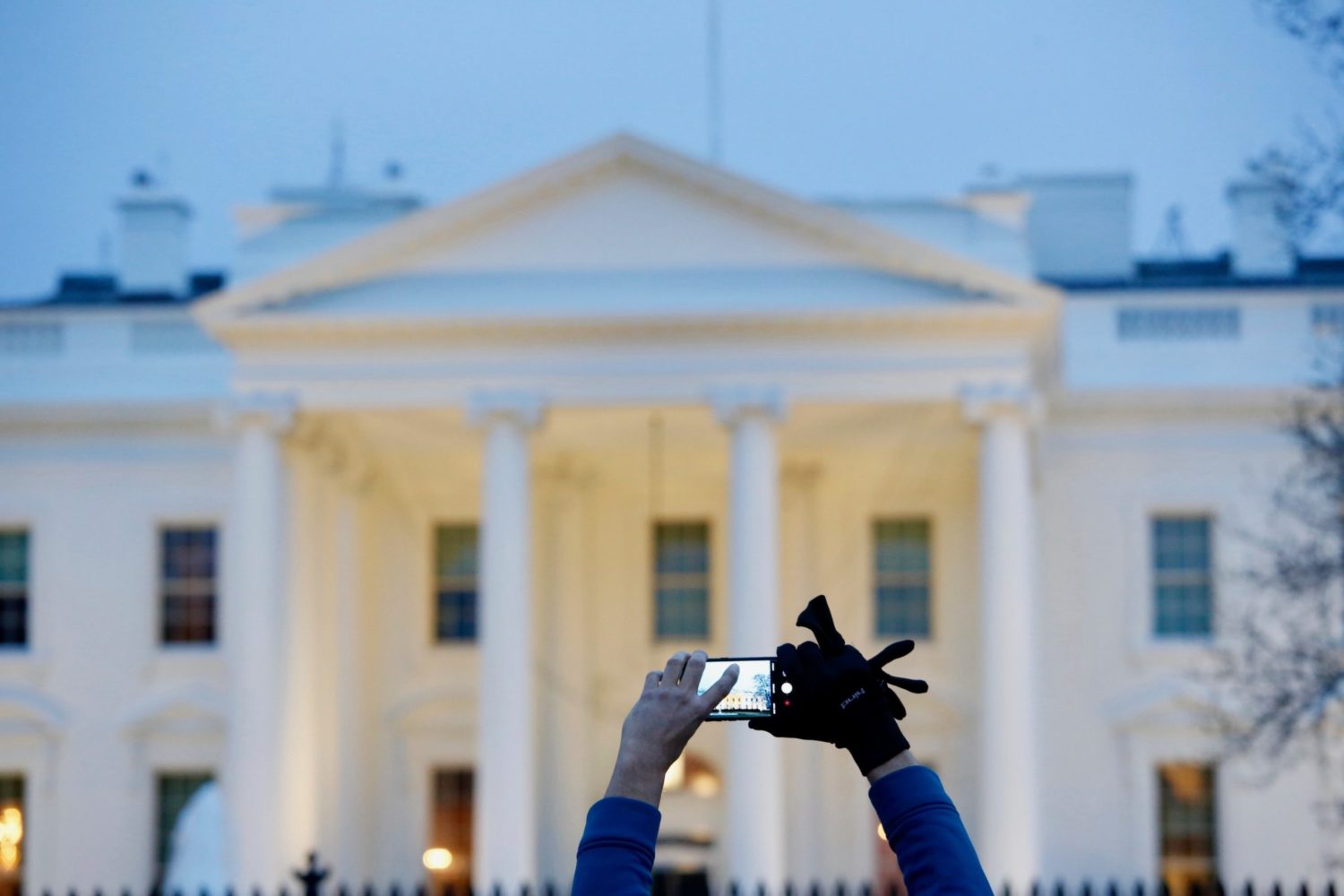A little before 3 PM on December 4, 2016, Edgar Maddison Welch entered Comet Ping Pong carrying a loaded AR-15. He’d driven to the DC restaurant from North Carolina, motivated by a bizarre conspiracy theory that had recently burst into public view alongside the surprise election of Donald Trump: that rather than being a family-friendly spot known for late-night indie-rock gigs and idiosyncratic pies with nicely charred crust and sauce made from Toigo Farms tomatoes, Comet was the center of a pedophilia ring that reached the highest levels of US politics.
It was a Sunday afternoon, and as employees and customers fled, Welch searched the restaurant for an entryway to its basement, which the theory held was where the cabal kept its dungeon. (Comet has no basement.) He fired several shots into a door and spent 20 more fruitless minutes in the restaurant chasing confirmation of the conspiracy theory before he left, unarmed, and was arrested. Welch faced charges of interstate transportation of a firearm and ammunition and assault with a dangerous weapon. He pleaded guilty the following March and received a four-year sentence. Federal Bureau of Prisons records say he was released this past May.
I edited Benjamin Freed and Jessica Sidman’s breaking-news story about the incident that weekend, which we updated through the evening as we got more news. I knew about the Comet Ping Pong conspiracy theory, but I was surprised when people on Twitter started accusing Washingtonian of publishing the story beforehand, as part of a further conspiracy, I suppose. We didn’t have a dedicated audience editor at the time, so I was among a number of employees who monitored our social channels. I reported many of the tweets, which I traced to a post on Voat (a kind of alt-Reddit popular with the far right at the time) urging readers to harass us. Twitter—surprise!—found no harassment.
This was, in retrospect, the moment I should have known we were in a new era. We were a little more than a month away from Sean Spicer lying about attendance of Trump’s inauguration and Kellyanne Conway’s idea of “alternative facts.” It’s quaint to read coverage from back then and watch news organizations struggle to describe what’s obviously BS in neutral terms.
Now when I write about anything involving the far right, I expect emails, direct messages, and tweets that deny reality. For instance, last month when I wrote about far-right people promoting the recent “Million MAGA March” in DC and linked to posts from far-right people promoting the march, I received dozens of emails accusing me of making it up. Just yesterday, when I quoted former Trump adviser Sebastian Gorka calling me a twit and cuck, some genius on Twitter accused me of fabricating the quotes. (I would make up more clever insults if I were so inclined.)
Almost every journalist I know has had these baffling experiences over the past four years, and I still don’t think our industry has figured out how to deal with the fact that a good percentage of the country will respond to the dog you’re describing with furious messages that it is, in fact, an elephant.
Welch’s inability to find a dungeon took some of the air out of “Pizzagate,” as that stupid theory had come to be known, but it hardly dented the trajectory of many of its proponents. General Michael Flynn and his son spread bogus theories about the Clintons and Pizzagate, respectively; President Trump, in addition to recently pardoning Flynn, never backed away convincingly from this coalition of nonsense that helped propel him into office and even retweeted numerous accounts that promoted Pizzagate and Qanon, a larger, later conspiracy theory that subsumed some of the Pizzagate lies. Pizzagate promoters like Mike Cernovich and Jack Posobiec and too many others to list successfully sought attention to themselves over the last four years (Posobiec even scored a White House press pass). Pizzagate itself began something of a revival earlier this year and even got a boost from young people on TikTok.
I wish I could say that four years later we’re rounding the corner on the kind of idiocy that brought Welch to DC, but the fact that half of Republicans believe the recent election was stolen doesn’t give me much hope. The Comet Ping Pong incident may have dented one conspiracy theory, but it was merely a warm-up act in a Fyre Festival of nonsense that I fear the US will be stranded in for a very long time.

















